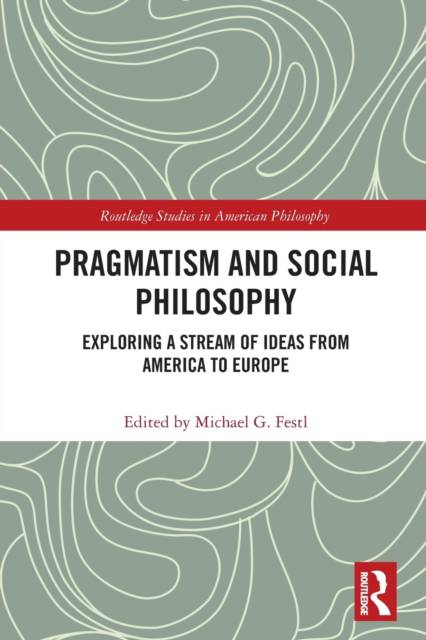
- Retrait gratuit dans votre magasin Club
- 7.000.000 titres dans notre catalogue
- Payer en toute sécurité
- Toujours un magasin près de chez vous
- Retrait gratuit dans votre magasin Club
- 7.000.0000 titres dans notre catalogue
- Payer en toute sécurité
- Toujours un magasin près de chez vous
Pragmatism and Social Philosophy
Exploring a Stream of Ideas from America to Europe
Description
This book explores the role that American pragmatism played in the development of social philosophy in 20th-century Europe.
The essays in the first part of the book show how the ideas of Peirce, James, and Dewey influenced the traditions of European philosophy, especially existentialism and the Frankfurt School of Critical Theory, that emerged in the 20th century. The second part of the volume deals with current challenges in social philosophy. The essays here demonstrate how discussions of two core issues in social philosophy--the conception of social conflict and the public--can be enriched with pragmatist resources. In featuring both historical and conceptual perspectives, these essays provide a full picture of pragmatism's role in the development of Continental social philosophy.
Pragmatism and Social Philosophy will be of interest to scholars and advanced students working on American philosophy, social philosophy, and Continental philosophy.
Spécifications
Parties prenantes
- Editeur:
Contenu
- Nombre de pages :
- 292
- Langue:
- Anglais
- Collection :
Caractéristiques
- EAN:
- 9780367675103
- Date de parution :
- 31-05-23
- Format:
- Livre broché
- Format numérique:
- Trade paperback (VS)
- Dimensions :
- 152 mm x 229 mm
- Poids :
- 403 g

Les avis
Nous publions uniquement les avis qui respectent les conditions requises. Consultez nos conditions pour les avis.





